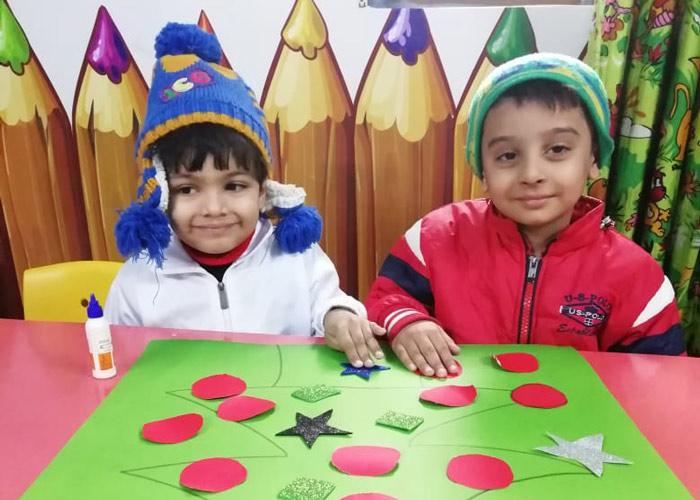Physical Health and Well-Being
Observable Behaviors:
Children are energetic, developing hand-eye coordination, and visual acuity necessary for detailed tasks. They require small, regular meals.
Program Considerations:
We provide ample space and opportunities for physical activity, encourage the use of writing and drawing tools, and promote healthy eating habits.
Social Knowledge and Competence
Observable Behaviors:
Children begin to understand acceptable and unacceptable social behaviors and start developing the ability to relate to others. They thrive on social interaction to develop a sense of self.
Program Considerations:
Our program supports and praises acceptable behaviors, provides models for problem-solving (e.g., using words, making positive choices), and creates opportunities for children to become aware of others’ needs and ideas through discussions and sharing.
Emotional Maturity
Observable Behaviors:
Children need to feel valued, express their interests and ideas, and communicate their feelings. They require others to be considerate of their personal needs.
Program Considerations:
We provide opportunities for children to express their viewpoints, make independent choices, and recognize individual strengths and differences. Our program encourages the development of independence and provides necessary support.
Cognitive Knowledge
Observable Behaviors:
Children are eager to learn through interaction with their environment. They need continuity in their learning experiences, recognition of letters and numerals, and related concepts.
Program Considerations:
We deliver learning experiences that are concrete, active, interactive, and connected to the children’s world. Our program includes consistent routines and a balanced, differentiated approach that supports each child’s growth based on their individual learning expectations and assessments.
Communication Skills and General Knowledge
Observable Behaviors:
Children use language to self-regulate, express needs, imagine, reason, and predict. They speak in simple sentences and are understood by peers and adults. They are developing age-appropriate knowledge about their world through exploration, play, discovery, investigation, inquiry, and modeling.
Program Considerations:
Our program offers various contexts for language development and usage, ensuring activities are engaging and build on the children’s existing knowledge. We take into account each child’s stage of oral language development.
Developmental Considerations for Play School Children
Young children possess a remarkable capacity to learn, with significant developmental milestones occurring between birth and six years across physical, social, emotional, cognitive, and linguistic domains. Recognizing the unique strengths, interests, and needs of each child, our teachers tailor their methods and materials accordingly.
Using observations, parental input, and early identification of children’s learning needs, we continually assess and support each child’s development. This ongoing assessment ensures our preschool program meets individual needs and fosters growth in the five key developmental areas.
Anti-Discrimination Education
Our playschool is committed to providing an educational environment free from discrimination, ensuring all students have equal opportunities to achieve their full potential. This commitment influences all aspects of school life, promoting a climate that encourages high standards, affirms the worth of all students, and helps them develop a positive self-image and strong sense of identity.
Join us at 360° Kids Play School, where we create a nurturing, inclusive, and stimulating environment for your child’s early learning journey.

